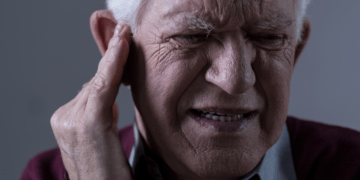As time slowly passes by, chances are that come 40, there will be certain things we will have lost out on. It could be a carefree lifestyle, physical agility, or the ability to relate to younger generations. These losses become inevitable when our perspective on life changes from youthful idealism to mature realism. Growing older and wiser is often accompanied by setbacks in different aspects of life and a decline in our abilities. While these changes may be emotionally taxing, it is important to understand that they come with age and should not be taken too seriously. Here, we focus on the 10 things people lose by age 40 and how to prepare for them or prevent them altogether!
1. Your ability to stay up all night and party
One of the 10 things you lose by age 40 is that you have likely lost your ability to stay up all night and party. That legendary capacity to go out late and stay up until dawn has diminished along with your youthful energy and enthusiasm. With age comes responsibility and a higher need for restful sleep, making partying after a particular hour seem impossible. As days turn into weeks and months, staying up late often becomes a distant memory as the effects of aging limit physical energy and reduce the chances of feeling rested in the morning.

It’s not just physical energy that diminishes with age; motivation also plays a vital role in the ability to party late at night. When you’re younger, it’s easier to get psyched up for events and occasions, but as you get older, life can become more predictable and mundane, making it hard for some to find the will or inspiration to pursue nightlife activities. Even if you muster up enough excitement to go out at night, there’s usually a different expectation than when you were younger—you may not be able to keep up with the same crowd or activities that used to excite you before. While partying late at night can still be done by people over 40, it’s much less common due to these physical and mental changes brought on by age.
2. Your metabolism among 10 things you lose by age 40

Many individuals have noticed a decrease in their metabolism, one of the 10 things you lose by age 40. This is due to the fact that the body’s natural metabolic rate starts to slow down when people reach their 30s and 40s. The slower metabolism can be seen as a result of hormones becoming less active or changes in muscle mass due to age or lack of exercise. When it comes to weight loss, individuals tend to find it harder to shed excess pounds as they get older because their metabolism is no longer running at peak efficiency like it did when they were younger. For those entering the later stages of life, maintaining an optimal diet and engaging in regular physical activity is essential for helping to keep your metabolism from slowing down too much. Additionally, even minor lifestyle tweaks such as eating more protein and fewer refined carbohydrates may help some individuals maintain their metabolism and prevent further decline from occurring. To combat this inevitable change, adults over the age of 40 should focus on creating healthy habits that involve regular exercise and eating nutrient-rich foods, which will help sustain an efficient metabolic rate for years to come.
3. Your muscle mass is another of the 10 things you lose by age 40
As you age, changes in your body become more and more pronounced. By the time you reach 40, you have likely lost a noticeable amount of muscle mass due to an inevitable decrease in testosterone levels. Reduced testosterone production means your muscles cannot maintain their previous strength and density. This can be seen in many ways, from the number of repetitions you can do with a given weight to diminishing tone and definition.
Outside of the physical changes, this reduction in muscle mass can also lead to decreased mobility and joint flexibility. Your body’s natural ability to respond quickly and move with agility is less prevalent than when you were younger. Furthermore, with less muscle comes fewer hormones responsible for regulating metabolism, which can make it harder to lose weight or maintain body composition – two common complaints for people over the age of 40.

All things considered, reducing muscle mass happens naturally as you age; however, there are still steps you can take to counter these effects by leading an active lifestyle full of exercise and healthy eating habits. Consistent effort and dedication make it possible to keep your muscles strong and healthy even as you approach 40 years old.
4. By Age 40, a decline in memory recall
By the time we reach forty, it’s not uncommon to observe a decline in memory recall and concentration abilities. This is a normal consequence of aging; the neurons in our brains, which are responsible for transmitting signals, begin to operate less efficiently. While the cognitive decline is rarely severe or incapacitating, it is perceptible. Concurrently, scientific research indicates that the hippocampus—a critical region for memory formation—undergoes changes as early as one’s twenties. Our memory retention may not be as robust as it once was in our forties.
Memory impairments can pose a significant challenge, especially for those who feel they’ve “lost a step.” Whether you’re grappling with forgetfulness in daily activities or struggling to recall information from recent meetings, age-related memory loss can be a frustrating hurdle. However, there are strategies for enhancing cognitive function as we age. For instance, engaging in mentally stimulating activities like puzzles and intellectual games can be beneficial. Regular reading and conversations on novel topics can also invigorate mental faculties. Understanding the age-related changes in brain function and proactively adopting healthy lifestyle habits can go a long way in preserving cognitive health.
5. Your sense of style
By the time you reach your forties, you will likely have lost a sense of style you once enjoyed. Many say that forty is the new twenties, but with age comes an understanding of fashion trends and how to dress for any occasion. The clothing choices that people make in their twenties are often dictated by what’s on trend and may not be timeless pieces, whereas, in your forties, the style becomes more important as it reflects who you are as a person and can help to communicate a message of confidence and composure. As people enter their forties, they begin to pay attention to classic staples such as leather jackets, trench coats, and a good pair of shoes – all indicative of someone comfortable in their skin. However, the fashion industry is constantly evolving, so updating your wardrobe regularly can become expensive, so shopping for timeless pieces becomes essential. Although losing one’s sense of style happens naturally with age, there are many ways to keep your look current without sacrificing personal style or breaking the bank.

6. Your ability to eat whatever you want
At age 40, you become more aware of the consequences of your diet choices. Many indulgences you may have enjoyed in your youth, such as sugary snacks and high-fat foods, take a toll on your body. You become more conscious of how much sugar or fat is in the food you consume and its effects on your overall health. It’s not just about avoiding foods that are bad for you; it’s also about finding healthier alternatives that satisfy cravings while still providing essential nutrients. Overeating sugar can cause weight gain and lead to diabetes, while consuming too much fat can lead to heart disease and other serious issues. Therefore, by age 40, many adults are actively trying to make healthier food choices so they can continue living their best lives while avoiding negative health consequences.
7. Your sense of smell
It is true that among the 10 things you lose by age 40 is a decline in your sense of smell. This is due to various factors, such as exposure to environmental pollutants, accumulation of fat deposits in certain areas at the back of the nose, and an overall decrease in nerve cells responsible for odor perception. In addition, certain medications and conditions like colds, allergies, or sinus infections can also affect one’s ability to detect smells. As we age, our noses gradually become less sensitive to subtle differences between different odors; people may find it harder to distinguish similar scents or even recognize everyday fragrances like perfume or food. This decline can be frustrating for those who enjoy cooking with fresh ingredients or wish to appreciate the smells around them entirely. Fortunately, some strategies allow us to maintain our sense of smell as we age, such as avoiding environmental pollutants and maintaining a healthy lifestyle. By exercising regularly, getting enough sleep, and eating a balanced diet, we can keep our smelling abilities functioning well into our golden years.

8. Your hearing is 10 things you lose by age 40
Among the 10 things you lose by age 40 that strikes deep is a decrease in your hearing and auditory capacities. A range of factors can contribute to diminished hearing, from genetics to lifestyle choices, but it’s an inevitable part of aging that cannot be neglected. This includes presbycusis (age-related hearing loss). This condition generally affects both ears and causes difficulty understanding conversation, discerning pitch and volume levels, and distinguishing between similar-sounding words. It’s common for people to experience tinnitus – a ringing or buzzing sound heard in one or both ears – which can range from temporary to permanent depending on individual cases. Individuals may also find their listening ability in loud environments or social settings severely compromised due to decreased sound processing abilities specific to aging. These changes are gradual for many people, but they still profoundly affect the overall quality of life, causing distress and fatigue due to the brain’s strain to interpret sound. As such, people over 40 must take proactive steps like regular ear health check-ups and wearing hearing protection when exposed to loud noises to preserve their hearing capabilities for future generations.
9. Your sense of adventure
At age 40, many individuals often face the harsh reality that their sense of adventure and willingness to take risks has been diminished. The spark of wanderlust that was once so strong may feel like it has been extinguished, leaving them feeling as if they are missing out on the chance to explore and discover new territories. This shift in attitude is often attributed to various factors, such as increased stress levels, a decrease in leisure time, or an overall feeling of unease when treading into unknown territory. Regardless of the cause, many 40-year-olds find themselves struggling with feelings of stagnation and monotony, unable to muster up enthusiasm for something exciting or daring. Furthermore, this loss can be accompanied by a fear of failure or rejection, an awareness that some opportunities may have passed them by, and a hesitancy to try something new for fear of being unable to fulfill it. Though some view this period as filled with regret and missed chances, others can seek new paths and experiences instead. By being mindful about setting goals and pushing yourself beyond your comfort zone—whether taking a weekend trip outside your city or signing up for an online course—you can still experience life’s little thrills and excitements even at this stage in life.
10. Your ability to recover from a hangover

As you age, your body’s ability to recover quickly from a hangover decreases, making it harder for those over 40 to feel better after drinking. The effects can range from feeling sluggish and groggy in the morning to having more severe symptoms such as nausea and headache. This is because older bodies are not as capable of metabolizing the toxins found in alcohol quickly, meaning these toxins remain in your system longer. To make matters worse, decreased levels of water and minerals from dehydration can cause hangover-related issues that may last several days. For those who have crossed the threshold into their 40s, it’s wise to listen to their body and remember that drinking in moderation is always best when avoiding a nasty hangover.
In conclusion, it is clear that age can significantly impact our lives, with many of the things we enjoy and take for granted in our younger years gradually slipping away. Of the 10 things we lose by age 40, some are physical changes in senses and metabolism, such as our ability to stay up all night and party and our sense of smell and hearing. Other changes can be more subtle and hard to recognize, such as our ability to eat whatever we want without gaining weight or the gradual loss of muscle mass with age. Finally, even the simple pleasure of recovering quickly from hangovers becomes a distant memory by 40. With these changes come wisdom, maturity, and experience, but also a reminder that time is precious – so make sure to make the most of your youth!
We have compiled some of our top articles for your reading pleasure. Take a look at them whenever you have the time.










































